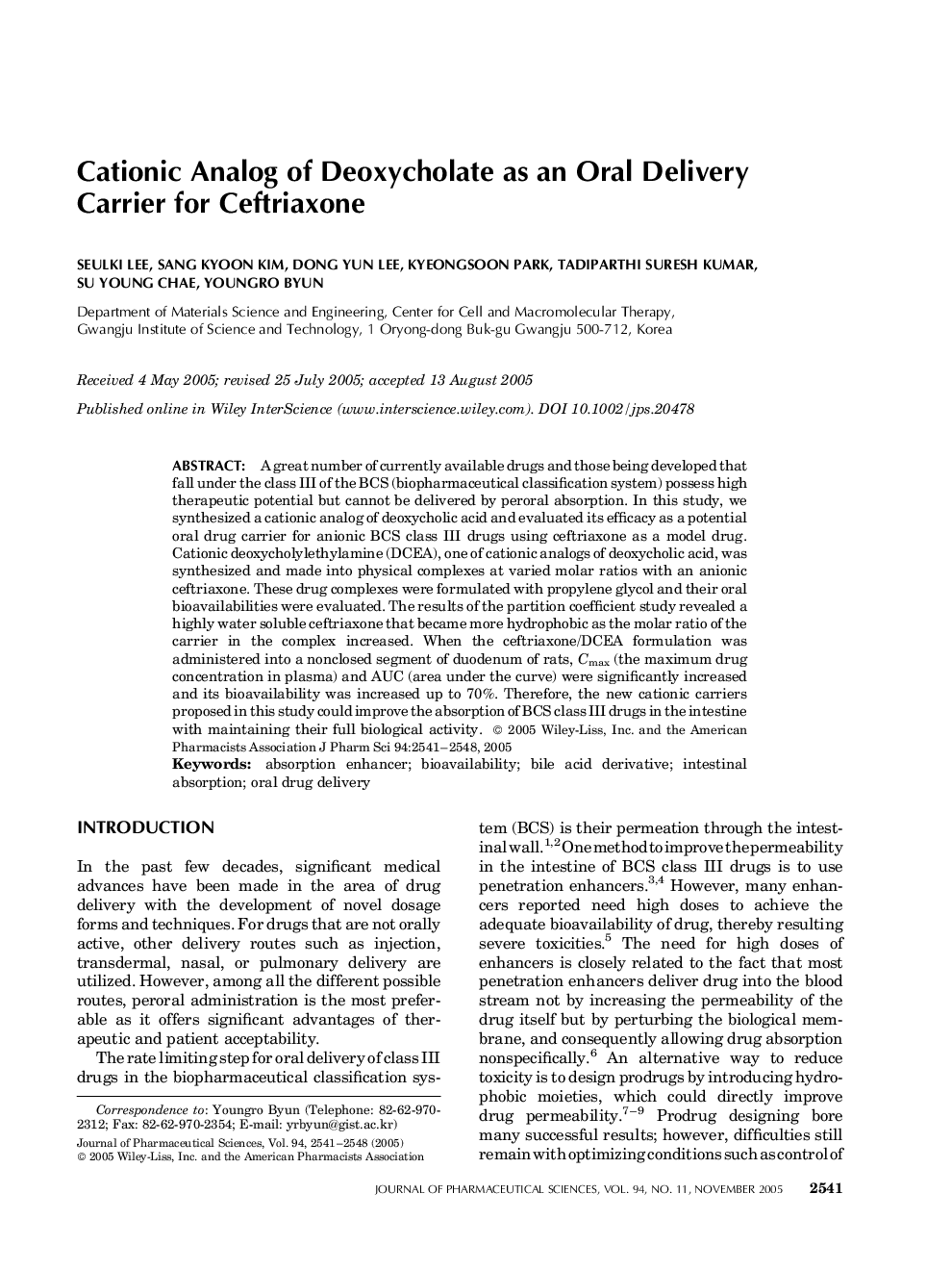| Article ID | Journal | Published Year | Pages | File Type |
|---|---|---|---|---|
| 2488224 | Journal of Pharmaceutical Sciences | 2005 | 8 Pages |
Abstract
A great number of currently available drugs and those being developed that fall under the class III of the BCS (biopharmaceutical classification system) possess high therapeutic potential but cannot be delivered by peroral absorption. In this study, we synthesized a cationic analog of deoxycholic acid and evaluated its efficacy as a potential oral drug carrier for anionic BCS class III drugs using ceftriaxone as a model drug. Cationic deoxycholylethylamine (DCEA), one of cationic analogs of deoxycholic acid, was synthesized and made into physical complexes at varied molar ratios with an anionic ceftriaxone. These drug complexes were formulated with propylene glycol and their oral bioavailabilities were evaluated. The results of the partition coefficient study revealed a highly water soluble ceftriaxone that became more hydrophobic as the molar ratio of the carrier in the complex increased. When the ceftriaxone/DCEA formulation was administered into a nonclosed segment of duodenum of rats, Cmax (the maximum drug concentration in plasma) and AUC (area under the curve) were significantly increased and its bioavailability was increased up to 70%. Therefore, the new cationic carriers proposed in this study could improve the absorption of BCS class III drugs in the intestine with maintaining their full biological activity.
Related Topics
Health Sciences
Pharmacology, Toxicology and Pharmaceutical Science
Drug Discovery
Authors
Seulki Lee, Sang Kyoon Kim, Dong Yun Lee, Kyeongsoon Park, Tadiparthi Suresh Kumar, Su Young Chae, Youngro Byun,
